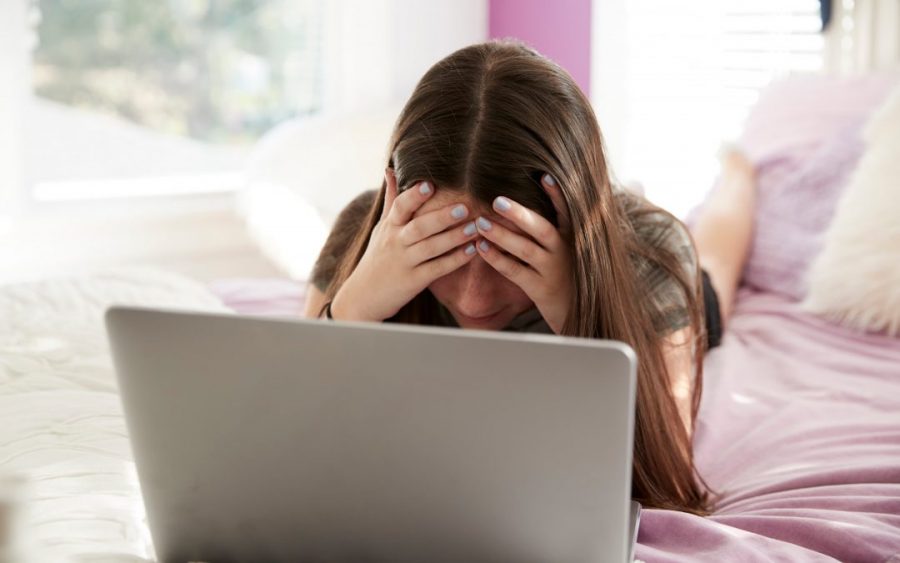Many experts have a concern that students’ overall health has suffered as a result of the lack of face-to-face contact with friends and teachers, difficulty concentrating, home problems, and other factors that complicate remote learning. A student’s mental health can have an effect on their personal life, education, and ability to succeed and learn.
Students will have to re-learn to learn in online settings, meaning that they will have to learn a new way to contain information. This lacks the structure and face-to-face interaction that a physical classroom provides.
The struggles of managing remote learning can stress out students who are used to being in a traditional classroom, resulting in high stress levels and more signs of mental health struggles for kids of all ages.
Since schools are also the safest places for these students and provide them with the assistance they need, losing this may have a negative impact on students’ mental health.
Jaiden Tobin, a junior at Elkhorn North, did online school the whole first semester as a request from his parents to be COVID-19 safe.
“I got so bored because during online school, life was the same thing everyday,” said Tobin.
A school day tends to be different everyday. Students are able to see and interact with different people, experience memorable moments, and learn in different ways. When a student is forced to repeat an entire schedule everyday at home they tend to be less motivated and happy.
He was lucky enough to have his three sisters and dogs in his house all day everyday to keep him company, but he still missed out on memories and good times with his friends.
Tobin found it hard to concentrate and get things done when he had so many more distractions around him than normal. This caused him to stress more than normal about grades and missing out on social interactions with people in his classes.
Long-term stress can cause many issues to a students mental health such as depression and anxiety.
“It made it harder for me to learn new concepts in classes because I couldn’t really ask questions,” Tobin said. Even when students have the access to teachers online, they are less likely to want to interact over a screen.
Sutton Johnson, a junior, made his own decision to continue on with online school. He did this for about two months between December and February and had to come back.
“I really missed the environment and seeing everyone. Online school got boring and lonely,” Johnson said.
Being socially isolated from people one is used to seeing everyday can cause a detriment to a student’s mental health, social interactions, and overall learning experience.
Martha Dowd, Elkhorn North Counselor, said, “Having three children, and being a teenager in the past, I know how interaction with your peers is vital for a student’s growth.”
Mia Layne is a junior at Elkhorn North who was quarantined two times because of COVID-19 exposure and absolutely dreaded it.
“Online school was so much harder and so much more stressful. Online learners are given higher expectations when it comes to assignments. I have so many distractions too that I have little to none motivation to do any of my work,” Layne said. “It is hard to learn when most of the time the teachers are more focused on the class rather than us online learners. Sometimes teachers even forget to put on the zoom or I can’t hear them which makes it ten times more stressful.”
Teachers at Elkhorn North do their best to get the online students involved but it can be difficult to make them feel included or helped when they are sitting at home rather than in a real life classroom with all of their classmates.
“Online school just makes everyone feel isolated and sad. It sucks,” said Layne.











